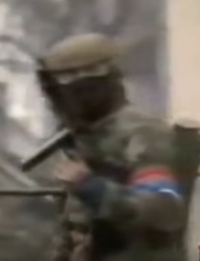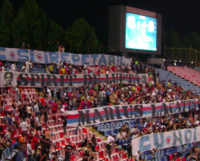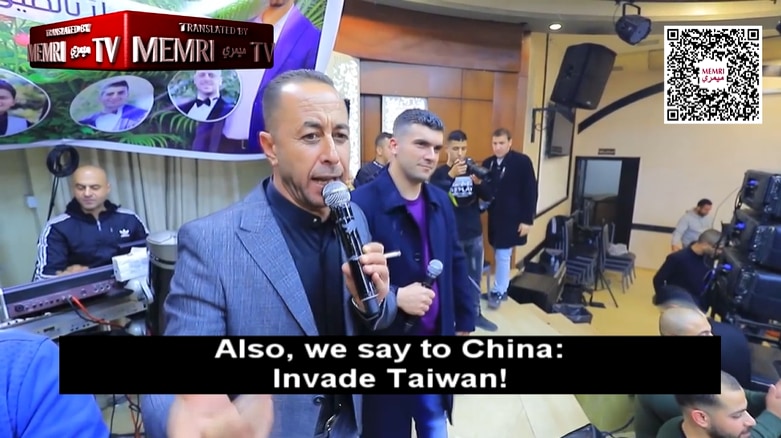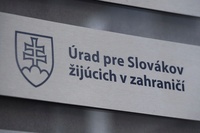 .
.Ratovi 90tih na prostoru SFRJ

- Posts : 40020
Join date : 2012-02-12
Location : имам пуну полицу књига, која ми је главна?
- Post n°276
 Re: Ratovi 90tih na prostoru SFRJ
Re: Ratovi 90tih na prostoru SFRJ
Ћуј сад, видео сам то 2007. Тако добро изгледа да ми је скоро жао што ми не треба  .
.
 .
._____
I drove a škodilak before it was cool.
Морони на власти чешће мењају правила него гаће.

- Posts : 10694
Join date : 2016-06-25
- Post n°277
 Re: Ratovi 90tih na prostoru SFRJ
Re: Ratovi 90tih na prostoru SFRJ
Kao sto sam onomad na ovome zboristu zborio:
Jedan od najiskusnijih ratnih izveštača na svetu i dobar poznavalac prilika na Balkanu o tome je, između ostalog, pisao u svojoj knjizi „Rat i smrt vesti“. Bel je 32 godine radio za „BBC“ i izveštavao iz 11 ratova, među kojima su oni u bivšoj Jugoslaviji, Vijetnamu, Bliskom istoku, Alžiru, Rodeziji, Salvadoru, Nikaragvi i Iraku. Prenosimo odlomke iz njegove knjige „Rat i smrt vesti“ o tome kako je Velika Britanija priznala secesiju Hrvatske:
– Lord Karington je bio predsednik Haške konferencije zadužen da pronađe mirovna rešenja pošto se Jugoslavija raspadala. Nevolje mu je zadavala kampanja Nemačke u korist Hrvatske. Drugog decembra 1991. godine, on je napisao evropskim ministrima spoljnih poslova: „Rano priznanje Hrvatske bi nesumnjivo značilo slom konferencije. Postoji realna opasnost, a moguće i verovatnoća da bi i Bosna i Hercegovina takođe zatražila nezavisnost i priznanje što bi bilo potpuno neprihvatljivo za Srbe u toj republici… To čak može biti varnica koja će zapaliti Bosnu i Hercegovinu“. Ovo je upravo ono što se desilo.
U to vreme, dugogodišnji ministar spoljnih poslova Nemačke Hans-Ditrih Genšer je odgovorio da napomene Lorda Karingtona, „verovatno ohrabruju one snage u Jugosaviji koje su se do tada čvrsto opirale zaključcima mirovnog procesa“.
Nemačka je pritiskala za priznanje Hrvatske i zbog pritisaka koje je imala u svojoj vladajućoj koaliciji. Genšerova Slobodno-demokratska partija je tada bila u koaliciji sa Hrišćansko-demokratskom unijom tadašnjeg kancelara Helmuta Kola i taj posao priznanja su priželjkivali za sebe. Genšer, koji je ranije kao ministar spoljnih poslova odigrao važnu ulogu u reunifikaciji Nemačke, sada je predvodio kampanju za priznanje Hrvatske. On se lično solidarisao sa Hrvatima, saglasio se sa vladom u Hrvatskoj i molio u njihovoj katedrali. Neke ulice i trgovi u Hrvatskoj su po njemu nazvani.
Sudbonosni sastanak Saveta ministara Evropske zajednice održan je u Briselu 16. decembra 1991. U početku su Nemci na svojoj strani imali samo Dance i Belgijance, koji su podržavali njihov stav prema Hrvatskoj. Ostali su se tome suprotstavljali. Međutim, nakon dugog sastanka i radne večere, aritmetika se promenila. U ranim jutarnjim satima 17. decembra, „Dvanaestorica“ se dogovorila da prihvati priznanje. Kako se desila promena?
Kasno te noći, Daglas Herd, tadašnji britanski ministar spoljnih poslova, pozvao je telefonom svoju vladu u Londonu. Teško je odupreti se zaključku da je to bilo u vezi sa ministarskim sastankom koji je održan dve nedelje ranije, kada je Nemačka bila od izuzetne pomoći Britaniji da dobije izuzeća iz Mastrihtskog ugovora, koji se tada pregovorao. Evropom je bio od presudne važnosti za britansku politiku. Tadašnji britanski premijer Džon Mejdžor je smatran zaslužnim za izuzeća koja je Britanija dobila Mastrihtskim ugovorom i dobio je generalne izbore koji su ubrzo usledili. Majdžor je tu pobedu nazvao, „gejm, set i meč“.
Debata je bila vrlo, vrlo oštra, ali je rezultat bolji nego što smo ga očekivali“. Ugovor u Mastrihtu i priznanje Hrvatske su, naravno, bile dve odvojene i nepovezane stvari – Genšer je o tom sastanku rekao. I Džon Mejdžor i Daglas Herd su negirali postojanje neke veze i trgovine njima. To je bilo više kao nezapisana razmena usluga između prijatelja, nezapisana, ali ne i da se o njoj nije govorilo.
– Ono što je istina je da kada smo došli do odlučujućeg momenta u Briselu po pitanju Hrvatske i Slovenije, Nemci su mi stvarno rekli – rekao je Daglas Herd. Setite se da smo se pobrinuli za vaše probleme prije 2-3 nedelje u Mastrihtu, tako da vas zamolimo da imamo jedan moralni i politički problem – dodaje on. Predviđanja Lorda Karingtona su se ostvarila i rat jednom kada je počeo postao je nezaustavljiv. ”

- Posts : 1037
Join date : 2017-10-28
- Post n°278
 Re: Ratovi 90tih na prostoru SFRJ
Re: Ratovi 90tih na prostoru SFRJ
A sta je poenta ovog teksta? Da velike sile trguju oko svojih interesa?
Ima i ona balvana Borisava Jovica koji je kukao sto su im Kinezi pred uvodjenje sankcija u UN porucili da mogu samo da budu uzdrzani od glasanja i uputili ih da se "o svemu dogovaraju sa Nemackom". Balvanu verovatno i dalje nije jasno zasto su dobili pedalu.
Ima i ona balvana Borisava Jovica koji je kukao sto su im Kinezi pred uvodjenje sankcija u UN porucili da mogu samo da budu uzdrzani od glasanja i uputili ih da se "o svemu dogovaraju sa Nemackom". Balvanu verovatno i dalje nije jasno zasto su dobili pedalu.

- Guest
- Post n°279
 Re: Ratovi 90tih na prostoru SFRJ
Re: Ratovi 90tih na prostoru SFRJ
talas priznanja je bio u pripremi mesecima pre toga, ništa tu nije lomljeno preko kolena. niti je posebno bitno da li je bilo u novembru, decembru, januaru ili februaru.

- Posts : 10694
Join date : 2016-06-25
- Post n°280
 Re: Ratovi 90tih na prostoru SFRJ
Re: Ratovi 90tih na prostoru SFRJ
Na osnovu cega to tvrdis?

- Guest
- Post n°281
 Re: Ratovi 90tih na prostoru SFRJ
Re: Ratovi 90tih na prostoru SFRJ
pa za početak predlog haške konferencije sredinom oktobra je već predviđao nezavisnost republika uz dogovor o modalitetu veza. milošević je, uz podršku skupštine srbije, to odbio. to je jedna stvar, a i to ima uvertiru.
mihael libal, nemački diplomata i (sa)učesnik nemačkih odluka (ne nepristrasni posmatrač, nikako, ali je bitno zarad shvatanja mišljenja o temi):
vrlo rano je nemačka kao centralno pitanje postavila tezu da se nije radilo o očuvanju jugoslavije nego o među-republičkim odnosima, gde je srbija bila neko ko je narušavao odnose tj hoće da menja granice. jugoslavija kao celina je apstrahovana iz debate.
dalje, holanđani:
mihael libal, nemački diplomata i (sa)učesnik nemačkih odluka (ne nepristrasni posmatrač, nikako, ali je bitno zarad shvatanja mišljenja o temi):
Let me recall that the decision of the EU in favour
of recognition came on 16 December 1991. What lay before that date? After a brief
war in Slovenia at the end of June 1991 intensive fighting accompanied by ethnic
cleansing had started in Croatia already at the end of July and had grown ever more
intense and disturbing over the following months. On 7 September the EC
Conference on Yugoslavia had opened in The Hague. After the Serbs had put a de
facto end to the Yugoslav state on October 3 by usurping control of the Federal
Presidency, EU Foreign ministers had two days later agreed on the principle of
recognition at the end of the negotiation process conducted under the auspices of
the community. Five days later, on October 10, the EC presidency had set a limit of two months for these negotiations. Serb procrastination had followed and had been
accompanied by the shelling of Dubrovnik and the shocking “liberation” of
Vukovar (on 18 November). And on 7 December the arbitration commission of the
EC Conference on Yugoslavia in The Hague, the so-called “Badinter Commission”,
entrusted with arbitrating the difficult legal matters that would come up during the
search for a political settlement, had recognized the disintegration of the Yugoslav
Federation, thereby implicitly confirming the German view of the disappearance of
the Yugoslav state and of the conflict as a Serbian war of territorial expansion.
...
There was one other
element in German policy which took the sting out of the loose talk about
“self-determination": the resolute refusal to a priori consider the possibility of a
change in the frontiers of the individual republics. Self-determination by these
republics could only be exercised in the framework of the existing frontiers. It
could not be combined with claims to the territory of other republics in the name of national or ethnic “self-determination”. Thus any aspirations towards a “Greater
Croatia” or a “Greater Albania” were as unacceptable to Germany as the “Greater
Serbia"-policy pursued by Belgrade. For Genscher in particular, to throw open the
question of the intra-Yugoslav borders (as suggested at one point in the early
summer of 1991 by the Dutch presidency of the EC) was to open a Pandora's box
for the whole of Europe. Thus, from the German point of view it was not the
Slovene and Croatian leaders and even less Germany herself which threatened the
status quo in the Balkans and in Europe in general. It was Milosevic and the
Yugoslav army with their general attack on the principles of the Paris Charta of the
CSCE and on the possibility that these principles would now be applied throughout
all of Europe.
...
In retrospect it even seems surprising how long Genscher resisted domestic
pressures for recognition. What he did refuse though, was to consider the principle
of non-recognition as an absolute dogma and the questioning of that dogma as an
unacceptable heresy. All through the summer and fall of 1991 he respected the
refusal of the EC to recognize Slovenia and Croatia , but as a merely pragmatic
decision of the EC, based on the recognition that success of EC policies depended
on the individual member states abstaining from unilateral actions (not from
expressing independent opinions). For the common policy of the EC after July
1991 did no longer aim at preserving the old Yugoslavia at all cost and for its own
sake. The aim was to help the parties to the conflict to find a peaceful solution,
possibly including a new association between the Yugoslav republics. The policy of
non-recognition aimed at keeping open such an option. Gradually it lost its purpose
once it became clear that Serbia was not really interested in negotiating a new
constitutional order on the basis of equality with the other republics. Genscher just
saw earlier than most of his colleagues that the Serbian blockade of the negotiation
process rendered the principle of non-recognition obsolete.
vrlo rano je nemačka kao centralno pitanje postavila tezu da se nije radilo o očuvanju jugoslavije nego o među-republičkim odnosima, gde je srbija bila neko ko je narušavao odnose tj hoće da menja granice. jugoslavija kao celina je apstrahovana iz debate.
dalje, holanđani:
The EC Foreign Ministers, who also met on March 4, briefly discussed
Yugoslavia during lunch, repeated their call for a dialogue between Belgrade and the republics. Five days later, however, Serbian security forces
backed up by tanks crushed student demonstrations in Belgrade.44 The
event prompted Germany to circulate a tough draft-declaration, which
spoke of the need for a ‘creation of a new Yugoslavia’. Other member
states argued that Germany was racing ahead of developments and it
proved impossible to reach agreement.
The political directors decided to suspend the issuing of a declaration
pending further developments in Yugoslavia. The Eastern Europe working group was asked to advise on the matter whereby it was to pay specific attention to the problems involved in the attempts to ‘issue a balanced
declaration which would do right to the tension that existed between the
principles of unity of the central state on the one hand and the right to
self-determination on the other.’ Given the struggle for independence of
individual Yugoslav republics as well as former Soviet republics, notably
the Baltic States and Ukraine, the working group was asked to advise on
the question of to what extent the unity of Central European states
should be supported under all circumstances.
...
When the Eastern Europe working group met, on March 19 and 20, it
seemed initially that there was considerable support for the Dutch (and
German and, probably, Danish) line of thought. The working group concluded that for the Soviet Union as well as for Yugoslavia, a ‘double track
policy’ was needed whereby the EC would maintain contacts, both with
the central authorities and, independently, with the republics. However,
this conclusion was thought to contradict the established policy of maintaining a formal distinction between the central authorities and the independent Yugoslav republics. As a result, the working group’s meeting
ended in confusion. The report of the meeting, drafted and circulated by
the EPC secretariat, qualified the conclusions: the contacts should primarily serve to convince the Yugoslavs to stay together.
In May, developments in Yugoslavia finally turned the crisis into an acute
political problem for the European Community’s Foreign Ministers. In a
clash in the Serb-held village of Borovo Selo in Croatia, Serb militiamen
killed twelve Croatian policemen, while three Serbs also lost their lives.45
Further complicating the situation was the announcement on 15 May by
Serbia that it would block the rotation of the Yugoslav federal Presidency
to the Croat Stipe Mesic.
As had been the case with the violent suppression of the student demonstration in Belgrade, Germany wanted the EC to issue an unequivocal and
strong response to the Borovo Selo incident. A German draft declaration
no longer mentioned the words ‘unity’ and ‘territorial integrity’ and concluded that the fundamentals of a durable solution were democracy, right
to self-determination, respect for human rights and the rights of minorities as well as the rule of law. The subsequent discussions revealed that the
majority of EC member states still believed that Yugoslavia’s territorial
integrity should remain the key principle of EC policy. In the final declaration, again, German thinking was left out and the ‘unity’ of Yugoslavia
again advocated.
The shared wish to stick to a consensus that had been reached in late 1990
continued to paralyse the European Community until the Slovenian and
Croatian declarations of independence of June 25, 1991 forced the Europeans to face up to a new reality. The first occasion on which to reassess
the European Community’s policy of support for the territorial integrity
of Yugoslavia came with the European Council of June 28 and 29 in Luxembourg. The declarations of independence now constituted a fact and
armed conflict between Slovenian police and the Yugoslav Army had
erupted the day before. A worst-case scenario that took into account such
developments had not been worked out. The Eastern Europe working
group and the CoPo had decided that a wrong signal would go out to
Slovenia and Croatia if the EC worked out potential responses to a crisis
situation triggered by their coming declarations of independence. Instead,
it had been decided to adopt a ‘wait and see’ attitude. Existing policy
would have to be continued right up until the moment of actual secession
and there would be no recognition before all possible consequences for
peace and security had been evaluated. There were to be no deals with
Slovenia that could not be reproduced with other republics, so as to keep
alive the possibility of a confederation. No wonder that the European
Council ‘had difficulty with the new situation’, as Prime Minister Ruud
Lubbers put it. According to Lubbers the main question faced by the European Council was: ‘How was one to handle the right to self-determination
within Yugoslavia?’.46 This was the question the EC Foreign Ministers had
found impossible to address seriously without splitting the European
Community. Not surprisingly the European Council did not, within the
space of two days, manage to find satisfying answers either. Van den Broek
remembers a ‘vehement debate about CSCE principles’ between French
President François Mitterrand and German Chancellor Helmut Kohl.
‘Mitterrand emphasised the importance of territorial integrity and Kohl
that of the right to self-determination.’47 Indeed, in his remarks to the
press, Mitterrand said that the EC ‘must not be accused of trivialising the
territorial integrity of Yugoslavia’, while Kohl declared ‘that the priorities
now were human rights, the rights of minorities and the right to selfdetermination’ [of individual Yugoslav republics].48 As some sort of conclusion, according to Lubbers, the European Council agreed that to ‘keep
Yugoslavia together as a country seemed neither a realistic nor a desirable
option. Nor was an uncontrolled departure by the constituent republics.
The process instead had to be managed and behind that aim the European
Community would rally in unison and with all strength.’4
...
Between July 8 and 12, Van Walsum immersed himself in ‘nothing but
Yugoslavia’.12 His conclusion was that the ‘real choice was between the
recognition of individual republics within their existing borders whereby
the protection of minorities would have to be guaranteed by legal instruments, or the redrawing of the republics’ borders in order to achieve a
maximum degree of ethnic homogeneity.’13 By July 12, Van Walsum had
worked out both options in a memorandum, which he sent to Van den
Broek, who was then in the regular Friday meeting of the Cabinet. According to Van Walsum, Van den Broek telephoned him that afternoon to say
that, while an interesting academic analysis, the paper did not actually
constitute policy. For his paper to be policy, Van Walsum would have to
make a case for one of the two options. Van Walsum told Van den Broek
over the phone that, despite obvious objections against border changes,
this was nonetheless the option he favoured. According to Van Walsum,
the Foreign Minister replied that once the author’s preference was reflected in the paper, it could go out to the EC capitals as a Coreu telegram’
(Coreu stands for ‘Correspondence Europeenne’, the telegram system
through which the EU capitals communicate).14 This telegram was sent on
Saturday July 13, with only the initials of the Director-General for Political
Affairs on it. The key section of the proposal was a carefully worded case
in favour of a ‘voluntary redrawing of internal borders as a possible solution.’15
As was pointed out, Van Walsum did not believe that legal instruments
could solve Yugoslavia’s minority problems. ‘It was unthinkable that
the Serbs in the Krajina, for example, would reconcile themselves to an independent Croatia on the basis of a minority statute.’16 ‘If Yugoslavia
was being destroyed by its ethnic differences, it did not seem very sensible
to choose precisely that option which would result in the creation of new
independent states (most notably Bosnia-Herzegovina), that would be
plagued by exactly the same ethnic differences.’17 Moreover, Van Walsum
believed the means to stop the moves towards partition from the outside
were lacking. Crucially, while Van Walsum recognised that the Serbs
stood to gain most from a revision of borders, the proposal was applicable to all of Yugoslavia, including Kosovo, where the ethnic Albanian population had similar ambitions to the Croats and Slovenes, Bosnians and
Serbs. As such, the proposal was intended to function both as a carrot and
a stick in the EC’s relationship with the Serbian leadership.
The Dutch border changes proposal was rejected out of hand by virtually
all the EC partners (only Denmark expressed some sympathy). It clashed
with the German approach, as presented by the acknowledged Yugoslavia-expert at the German Ministry of Foreign Affairs, Michael Libal,
which was founded precisely on recognition of the republics within their
existing borders as the juridical instrument to render illegal the Yugoslav
army’s intervention in Croatia.1
...
The Dutch text, which had been drafted on August 27, explicitly condemned Serbia and the Yugoslav People’s Army for their fait-accompli
policy in Croatia. It warned that this policy could never succeed in effectively protecting the Serbs in Croatia because the international community would never recognise borders that had been changed through force.
The text stated that an effective cease-fire, monitored by the international
community, was an absolute precondition for fruitful negotiations and
called upon Serbia to give up its resistance to an expansion of the EC
Monitoring Mission to Croatia. Crucially, the sanction proposed by the
Dutch Presidency, if Serbia were to refuse to heed these calls, would be
the exclusion of Serbia (and Montenegro) from EC-chaired negotiations
regarding the future of Yugoslavia. The implicit threat was clear: without
Serbia such talks could easily result in an agreement to recognise individual Yugoslav republics as independent states.
The Dutch EC Presidency thus for the first time showed a willingness to
adopt an anti-Serbian selectiveness.It was prepared to try and build a
consensus around the possibility of a settlement to which Serbia and
Montenegro would not be party, which would in turn open the way for an armed response of some sort to Serbian cross-frontier military
activities. The Dutch were not yet ready to give explicit support to an
early recognition as such; nor were they eager to repeat the debate of June
and July over that issue, the deceptive simplicity of which – one was either
for or against recognition – had divided the member states. Nevertheless,
the Presidency’s draft should have taken away any doubts on the part of
Germany as to whether the Netherlands was prepared to accept recognition as the eventual outcome.

- Guest
- Post n°282
 Re: Ratovi 90tih na prostoru SFRJ
Re: Ratovi 90tih na prostoru SFRJ
Dragan Vasiljković, poznat i kao kapetan Dragan, rano jutros pušten je iz zatvora u Lepoglavi i protjeran iz Hrvatske, javili su hrvatski mediji.
Vasiljkovića su u Lepoglavi preuzeli policajci koji su ga prebacili do graničnog prelaza Bajakovo, gdje je oko 9.30 časova protjeran iz Hrvatske.
Njemu je izdato rješenje sa zabranom ulaska i boravka na području "Evropskog privrednog prostora" u trajanju od 20 godina.
U Ministarstvu pravosuđa su potvrdili da je Vasiljković pušten nakon što je odslužio zatvorsku kaznu.
Vasiljković je izdržao zatvorsku kaznu od 13,5 godina na koju je bio osuđen u Hrvatskoj, zbog ratnog zločina.
Budući da mu je u izdržavanje kazne uračunato i vrijeme provedeno u ekstradicionom zatvoru u Australiji od osam godina i devet mjeseci, te u istražnom zatvoru u Hrvatskoj, kazna mu je istekla u martu ove godine.
Ranije su mu u čak tri navrata odbijani zahtjevi za uslovnim prijevremenim otpustom.
Kapetan Dragan, koji ima srpsko i australijsko državljanstvo, uhapšen je u Australiji gdje je živio i bio trener golfa. Hrvatskoj je izručen u maju 2015. godine.

- Posts : 28265
Join date : 2015-03-20
- Post n°283
 Re: Ratovi 90tih na prostoru SFRJ
Re: Ratovi 90tih na prostoru SFRJ
jadnicak, sad mora u karantenu
_____
#FreeFacu
Дакле, волео бих да се ЈСД Партизан угаси, али не и да сви (или било који) гробар умре.

- Posts : 40020
Join date : 2012-02-12
Location : имам пуну полицу књига, која ми је главна?
- Post n°284
 Re: Ratovi 90tih na prostoru SFRJ
Re: Ratovi 90tih na prostoru SFRJ
Ма неће га ни пустити да уђе, јер највећа опасност су ти наши што се враћају.
_____
I drove a škodilak before it was cool.
Морони на власти чешће мењају правила него гаће.

- Posts : 11046
Join date : 2015-05-16
- Post n°286
 Re: Ratovi 90tih na prostoru SFRJ
Re: Ratovi 90tih na prostoru SFRJ
Тренер голфа.
_____
Међутим у Србији-мук, када вам кажем-мук!

- Posts : 7154
Join date : 2020-03-05
- Post n°287
 Re: Ratovi 90tih na prostoru SFRJ
Re: Ratovi 90tih na prostoru SFRJ
13,5 godina odležao već? Kako brzo vreme prolazi kad nisi u zatvoru... ili samoizolaciji.
_____
"Burundi je svakako sharmantno mesto cinika i knjiskih ljudi koji gledaju stvar sa svog olimpa od kartona."
“Here he was then, cruising the deserts of Mexico in my Ford Torino with my wife and my credit cards and his black-tongued dog. He had a chow dog that went everywhere with him, to the post office and ball games, and now that red beast was making free with his lion feet on my Torino seats.”

- Posts : 1106
Join date : 2012-02-12
- Post n°288
 Re: Ratovi 90tih na prostoru SFRJ
Re: Ratovi 90tih na prostoru SFRJ
ni mardelj nije sto je bio. ja mislio doci ce mu glave hrvati da mi ne prljamo ruke a on ziv i zdrav.
hm mozda donese neki respijator iz dijasere
hm mozda donese neki respijator iz dijasere

- Posts : 18309
Join date : 2014-12-12
- Post n°289
 Re: Ratovi 90tih na prostoru SFRJ
Re: Ratovi 90tih na prostoru SFRJ
Niko da izvesti o novom muralu ispred tzv .Marakane?

- Posts : 34052
Join date : 2012-02-10
- Post n°290
 Re: Ratovi 90tih na prostoru SFRJ
Re: Ratovi 90tih na prostoru SFRJ
Kojem?
_____
★
Uprava napolje!

- Posts : 18309
Join date : 2014-12-12
- Post n°291
 Re: Ratovi 90tih na prostoru SFRJ
Re: Ratovi 90tih na prostoru SFRJ
Trenera golfa, ima u VNovostima, ne mogu sa telefona.

- Posts : 15008
Join date : 2016-03-28
- Post n°293
 Re: Ratovi 90tih na prostoru SFRJ
Re: Ratovi 90tih na prostoru SFRJ

_____
Što se ostaloga tiče, smatram da Zapad treba razoriti
Jedini proleter Burundija
Pristalica krvne osvete

- Posts : 7659
Join date : 2019-06-06
- Post n°294
 Re: Ratovi 90tih na prostoru SFRJ
Re: Ratovi 90tih na prostoru SFRJ
https://twitter.com/i/status/1246405178217152512

- Guest
- Post n°295
 Re: Ratovi 90tih na prostoru SFRJ
Re: Ratovi 90tih na prostoru SFRJ
Reading the records of Slobodan Milosevic's talks with the Russian leaders (1995). Milosevic lashes out at the Russians for supporting the US-led sanctions regime against Yugoslavia.
— Sergey Radchenko (@DrRadchenko) April 25, 2020
In this bit he argues that "someone" is trying to break up Yugoslavia in order to create tiny little states that could be easily manipulated. "We have no masters, this is our sin," Milosevic adds. "We are proud of it." pic.twitter.com/GfPDxdGysa
— Sergey Radchenko (@DrRadchenko) April 25, 2020
Interesting to read these a quarter of a century on. Interesting, too, that Putin's rhetoric today closely mirrors what Milosevic had to say back in the mid-1990s.
— Sergey Radchenko (@DrRadchenko) April 25, 2020

- Posts : 49940
Join date : 2017-11-16
- Post n°296
 Re: Ratovi 90tih na prostoru SFRJ
Re: Ratovi 90tih na prostoru SFRJ
Kad kaze "mi nemamo gospodare" ono sto misli je "ja nemam gospodara". I, btw, ta politika kvazi-suverenizma je daleko od mrtve. Najnoviji njen pojavni oblik je recimo upravo odbijanje ovog povoljnog kredita od nekoliko 100tina miliona evra. Ta politika je samoubistvena jer male drzave nikada nisu na taj nacin suverene, cak ni ako su veoma bogate.

- Posts : 40020
Join date : 2012-02-12
Location : имам пуну полицу књига, која ми је главна?
- Post n°297
 Re: Ratovi 90tih na prostoru SFRJ
Re: Ratovi 90tih na prostoru SFRJ
А на који начин су суверене, кад јесу?
_____
I drove a škodilak before it was cool.
Морони на власти чешће мењају правила него гаће.

- Posts : 49940
Join date : 2017-11-16
- Post n°298
 Re: Ratovi 90tih na prostoru SFRJ
Re: Ratovi 90tih na prostoru SFRJ
паће wrote:А на који начин су суверене, кад јесу?
Pa ne moze tako, prvo se mora utvrditi sta je danas u stvari drzava, odnosno koji su sve izvori legitimiteta sredisnje vlasti

- Posts : 40020
Join date : 2012-02-12
Location : имам пуну полицу књига, која ми је главна?
- Post n°299
 Re: Ratovi 90tih na prostoru SFRJ
Re: Ratovi 90tih na prostoru SFRJ
Mór Thököly wrote:паће wrote:А на који начин су суверене, кад јесу?
Pa ne moze tako, prvo se mora utvrditi sta je danas u stvari drzava, odnosno koji su sve izvori legitimiteta sredisnje vlasti
Аха, за "јесу" треба редефиниција, за "нису" може из рукава.
_____
I drove a škodilak before it was cool.
Морони на власти чешће мењају правила него гаће.

- Posts : 49940
Join date : 2017-11-16
- Post n°300
 Re: Ratovi 90tih na prostoru SFRJ
Re: Ratovi 90tih na prostoru SFRJ
Da, zato sto pricamo konkretno o onome kako je Milosevic to video. Na konkretan iskaz konkretan komentar
|
|
|



 by паће Sun Jan 26, 2020 9:18 am
by паће Sun Jan 26, 2020 9:18 am
